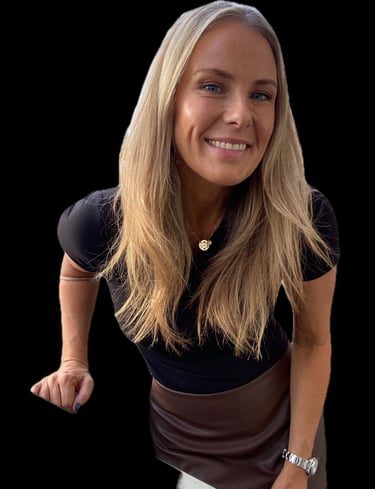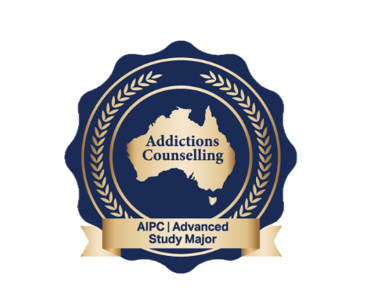“What Does a Counsellor Really Do? Breaking Stigmas + Why ACT Therapy Works”
COUNSELLING
Written by Rachel Mehaffey
You’re Not Broken: The Modern Reality of Counselling (and Why ACT Therapy Works
Let’s talk about counselling—the real kind.
For a long time, “seeing a counsellor” came with a lot of baggage, the kind where you rock up at the airport only to find yourself paying an outrageously inflated 'judgemental' price. There was a belief that only people who were really struggling, failing, or weak went to therapy. That it was something you did when you’d hit rock bottom—when your life was falling apart, or you couldn’t “cope.”
Worse still, some people saw it as self-indulgent. Like it was all about crying on a couch, blaming your parents, or dissecting your childhood while ignoring what’s actually happening now.
Others assumed counselling meant dwelling endlessly on the past, rather than taking action in the present.
Or that it was about "fixing" something—because clearly, if you needed help, something in you must be broken.
But here's the truth: those ideas are outdated. And they’ve stopped a lot of people from getting the support that could have changed their lives.
Counselling Today Is Not About Weakness—It’s About Strength
Modern counselling doesn’t pathologise you.
Unlike psychology, it doesn’t assume you need a diagnosis to be worthy of support or medications to fix you, and it absolutely doesn’t believe you're weak for wanting to understand yourself more deeply.
In fact, sitting with your emotions, unpacking your reactions, and facing the uncomfortable truths about how you're showing up in life? That takes strength. As a counsellor the type of therapy I use—Acceptance and Commitment Therapy (ACT)—is designed to honour that strength.
It doesn’t sweep away pain or pretend it doesn’t exist.
Instead, it gives you the tools to sit with discomfort, get clarity on what matters, and take meaningful action—especially when life is hard.
What is ACT? And Why Do I Use It?
ACT (pronounced like the word "act") stands for Acceptance and Commitment Therapy.
It was developed by psychologist Steven C. Hayes in the 1980s as a way to bring mindfulness, behavioural science, and values-based living into the therapy room.
Here’s the core truth that ACT is built on:
💬 Suffering is part of being human—but we don’t have to let it run our lives.
Rather than fighting your thoughts, trying to feel “positive” all the time, or waiting until the storm passes, ACT helps you:
Accept what’s showing up in your internal world (without judgment)
Create distance from unhelpful thoughts or stories
Reconnect with your values
Take committed action, even with discomfort present
In short, ACT teaches you to stop fighting your experience and start choosing how you want to respond to it. Rather than running from what is uncomfortable, turn into it and understand it.
🧠 The Six Core Processes of ACT (Simplified)
ACT is built on six key processes that work together to create psychological flexibility—which basically means the ability to stay open, present, and engaged in what matters, even when life gets hard.
Here’s a simple breakdown:
1. Acceptance
Learning to open up and make space for uncomfortable emotions, instead of pushing them away or fighting them.
2. Cognitive Defusion
Creating space from your thoughts so they don’t boss you around. Thoughts are just words—not facts.
3. Being Present
Mindfulness in action—noticing what’s happening right now instead of replaying the past or pre-living the future.
4. Self-as-Context
Understanding that you are not your thoughts, roles, or feelings — you're the observer behind them. This creates calm and clarity.
5. Values
Clarifying what matters most to you—not what others expect, but what makes your life meaningful.
6. Committed Action
Taking conscious steps aligned with your values, even when fear or discomfort is present.
Why I Love ACT (And Why My Clients Do Too)
ACT resonates so deeply with me because it’s not about pretending. ACT is helping you access authenticity in the deepest way. Showing up, owning your shit, and working yourself into a better version of who you want to be. Not sitting in the past or wishing for the future but looking at the here and now.
It doesn’t ask you to mask your pain, push away your emotions, or deny your reality.
Instead, it says:
“Okay, this is what’s here. Let’s get curious about it. Let’s understand it. And let’s decide where you go from here.”
That space between your thoughts and your actions—that’s where your power sits.
And that’s what we develop together in our sessions.
ACT gives my clients the tools to:
Stop getting hijacked by unhelpful patterns
Make peace with the parts of themselves they’ve judged or ignored
Start showing up in ways they feel proud of—even if life isn’t ‘perfect', it’s not passive. It’s not fluffy. It’s deeply practical and incredibly powerful.
From Struggle to Strength—One Step at a Time
In an ACT-based session, we’re not just talking about your week.
We’re zooming out and asking, “What do you want your life to stand for?”
Then we work through what’s getting in the way—not to make those barriers disappear, but to loosen their grip and move through them with clarity and intention.
You don’t need to have a diagnosis or crisis to start; in fact, almost everyone I know could use the ACT principles to show up more authentically and with less fear in life.
You just need to be ready to look inward, get honest, and build something more meaningful—with the tools and support to actually do it.
If You’ve Been Wondering If Counselling Could Help You—This Is Your Sign
You don’t need to keep holding everything together on your own.
You don’t have to wait until it all falls apart to start unpacking what’s not working.
And you definitely don’t need to believe the outdated stories that say counselling is about being weak or broken. It’s not. It’s about reclaiming your voice, your power, and your direction.
Ready when you are.
Rach xx


I'm Rachel
A certified counsellor and life coach!
As a counsellor & reformer Pilates instructor, I work daily with women on their minds and bodies. I know from personal experience we are not alone in our struggles. There are common grounds, shared experiences, and definitely a way to move forward.
Enjoy the blog; I've designed it to be relatable.


Let's Connect
Instagram let's me inspire daily while LinkedIn helps me teach!
Just a single Mumma from Adelaide who cares how you live your life.
Let's connect & inspire each other.








